NIL & Student Athlete Sports News
Browse all of our news articles covering Name, Image and Likeness opportunities and updates in student athlete sports.
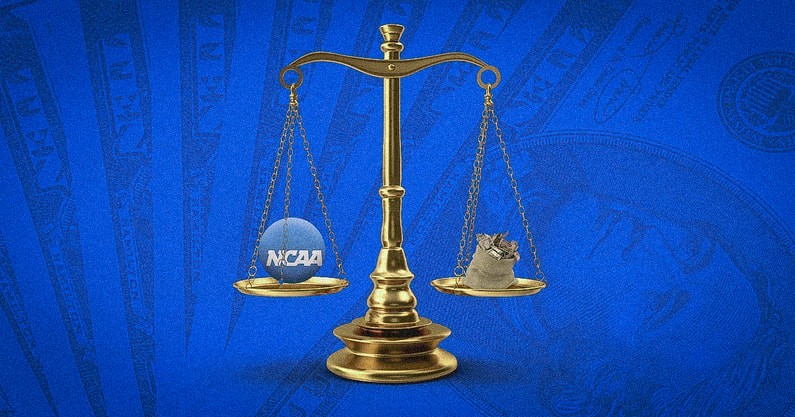
Revenue-share cap about to jump, giving schools more cash to pay players
Ross Dellenger — 3 hours ago
Read More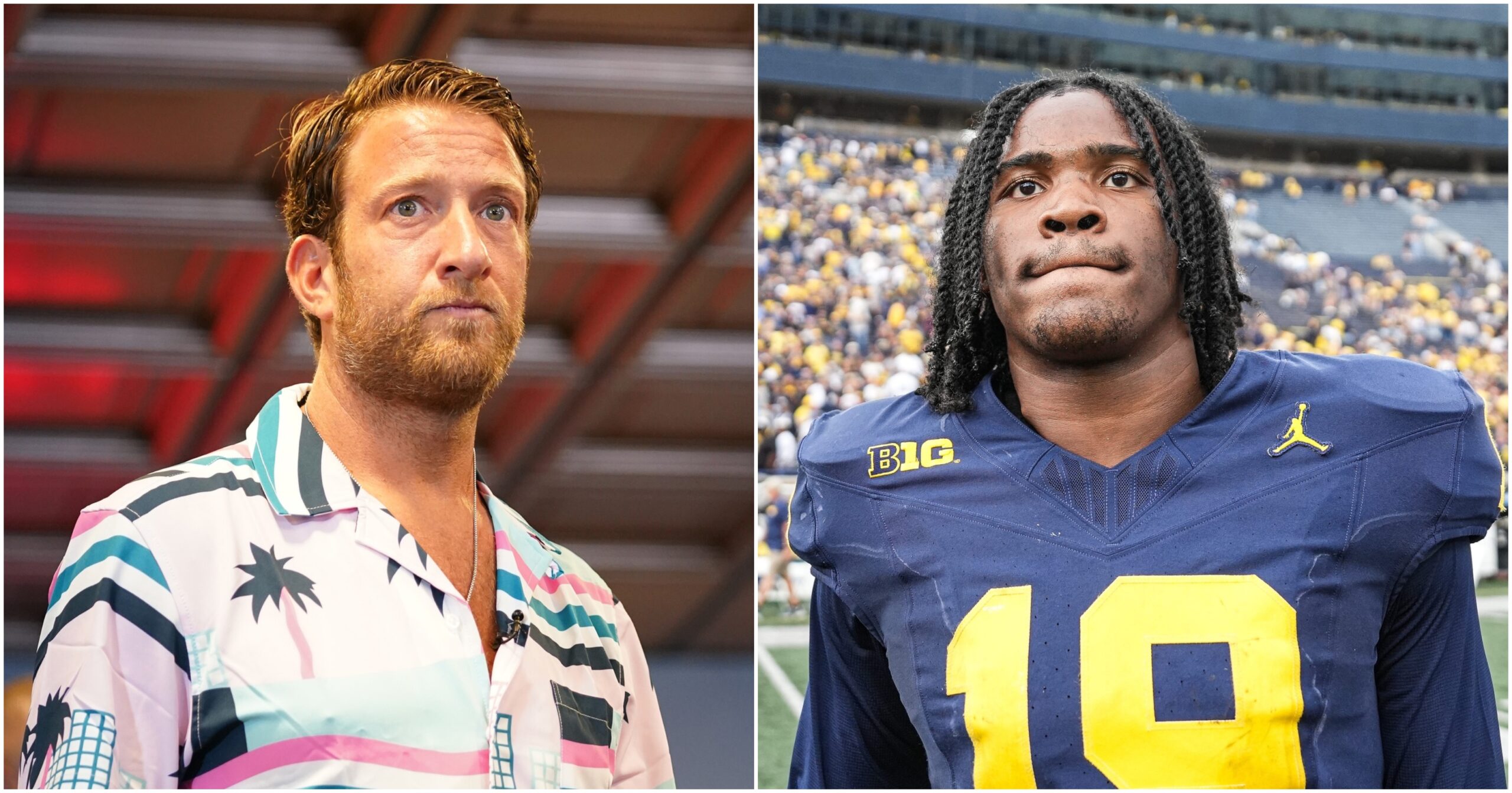
Dave Portnoy 'out of it' if Bryce Underwood wants to rework NIL deal with Michigan
Alex Byington — 20 hours ago
Dave Portnoy promised to make sure Michigan never wanted for a superstar quarterback recruit, and pledged millions to make that happen. Portnoy’s efforts bore fruit when the Wolverines flipped 2025’s No. 1 overall quarterback Bryce Underwood in the days leading into last year’s Early Signing Day.
A year later, the Barstool Sports CEO has made it clear he has no interest in being involved in any future renegotiations involving Michigan’s well-paid freshman QB. Portnoy opened up about his involvement in Underwood’s recruitment and his thoughts on the generally poorly-regulated world of NIL during an appearance on Tuesday’s The Triple Option podcast with co-hosts and fellow FOX Sports‘ Big Noon Kickoff personalities Mark Ingram, Urban Meyer and Rob Stone.
SUBSCRIBE to the On3 NIL and Sports Business Newsletter
“I’m out of it. (Underwood would) have some big balls to say he wants to renegotiate now. I don’t think that’s coming down the pipe. That would be surreal,” Portnoy said on The Triple Option podcast, likely referencing Underwood’s difficult true freshman season in which he ranked 11th in the Big Ten in passing with 2,229 yards and nine touchdowns to six interceptions. “But I’m out of it. My involvement in that (process), I’ve told the story a little bit, I was on one of our (Barstool) podcasts and after watching the Michigan quarterback play (in 2024), I was like, ‘We’ll never not have a (viable) quarterback, I will go get us a quarterback. I’ll pledge like $3 million if I have to to get (Michigan) a quarterback.’”
Portnoy then relayed the story about how he connected with Jolin Zhu, the wife of multibillionaire entrepreneur Larry Ellison, in an effort to put together a strong NIL offer for Underwood’s services, though his participation has been mostly of a distant benefactor. And for good reason. Portnoy, a successful businessman in his own right, has no interest in diving into the wild world of NIL.
“To me, it seems like anything goes now (with NIL). … It seems like there’s no rules,” Portnoy added. “There’s no contracts, it’s not like professional sports, the NFL or anything like that. It really seems like if somebody came along and said, ‘Hey Bryce, here’s $20 mill,’ I think he could bounce if he wanted to. I don’t think there’s any rules going on with that, as far as I could tell. I was involved in the Bryce stuff, but I wasn’t involved in the pen-to-paper, so I don’t know what the actual contract or whatever they call it looks like.”
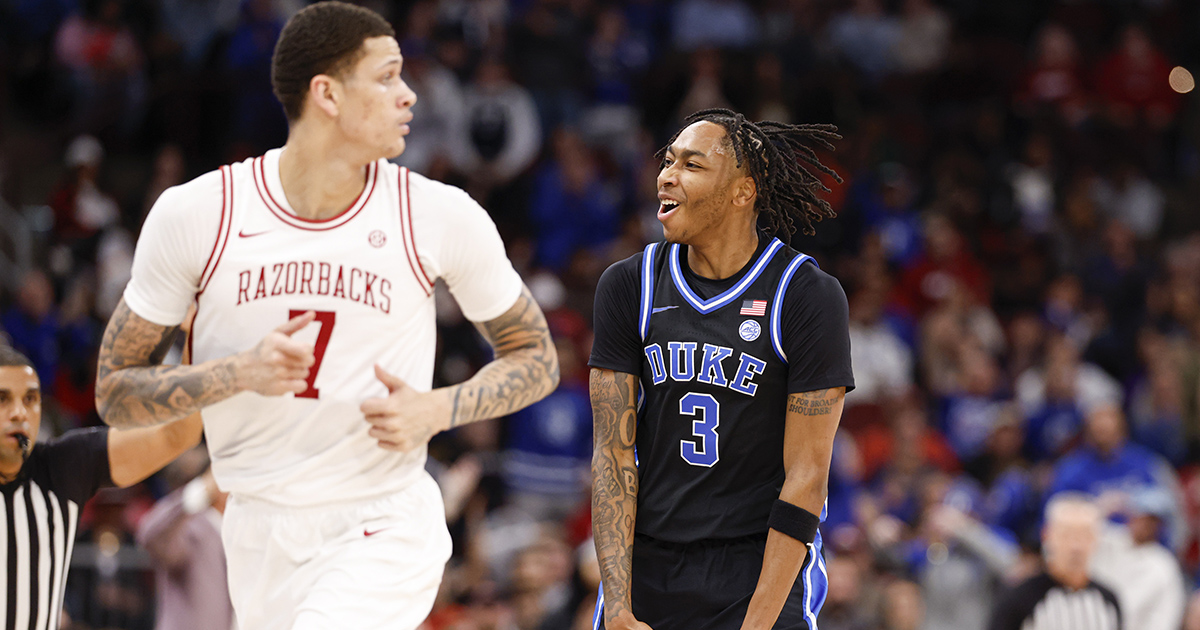
College basketball capitalizes on Thanksgiving, draws historic TV ratings
Nick Schultz — 18 hours ago
With NFL games anchoring the Thanksgiving sports slate, FOX and CBS looked to capitalize with college basketball following those matchups. It paid off.
Duke’s win over Arkansas averaged 6.8 million viewers on CBS, becoming the most-watched college basketball game on any network in more than 30 years, the network announced. The previous high mark was in 1993 when Purdue vs. Indiana averaged 7.23 million viewers on CBS.
SUBSCRIBE to the On3 NIL and Sports Business Newsletter
Additionally, FOX benefited from the Thanksgiving schedule. Michigan State’s victory over North Carolina averaged 6.499 million viewers to become the network’s most-watched college basketball game on record. It also peaked at 14.4 million viewers, FOX announced.
The NFL was king once again on Thanksgiving, drawing historic viewership throughout the day. It started with the Green Bay Packers’ victory over the Detroit Lions, which averaged 47.7 million viewers to become the most-watched early game on the holiday.
Then, CBS was the biggest winner. The Dallas Cowboys’ victory over the Kansas City Chiefs shattered the record for most-watched NFL regular season game on record, averaging a monster 57.2 million viewers. That’s over 15 million more than the previous record, set in 2022.
College basketball has been putting more marquee college basketball games on Thanksgiving, and the NFL lead-in is a way to increase the amount of viewers tuning in for those matchups. Nielsen’s Big Data + Panel also helped increase those figures, but the 100% out-of-home measurement was another factor, according to Front Office Sports’ Ryan Glasspiegel.
Duke vs. Arkansas and North Carolina vs. Michigan State are now the two most-watched college basketball games of the season so far. Duke’s win over Kansas previously held the top spot, averaging 1.87 million viewers in the Champions Classic last month.
How Duke, MSU got Thanksgiving wins
All told, five games on Thanksgiving featured at least one Top-25 team. Michigan State vs. North Carolina was first in the Fort Myers Tip-Off, and it was all Spartans in the 74-58 victory. Four players averaged double figures for Michigan State in that game, led by 19 points from Jeremy Fears Jr.
MSU did most of its damage from inside the three-point line in the game, shooting 52% from the field while taking 10 shots from outside. Additionally, the Spartans played strong defense, holding North Carolina to 38% from the floor and just 4-of-23 from three-point territory.
In the primetime window, Duke and Arkansas went back-and-forth before the Blue Devils came away with the 80-71 victory to stay undefeated. Cameron Boozer led the charge with a huge day, dropping 35 points and pulling down nine rebounds on the big stage.
Duke took a lead into halftime before Arkansas jumped out in front early after the break. But a late run helped the Blue Devils re-take the lead with 5:20 to play and they never looked back en route to their ninth win of the year.
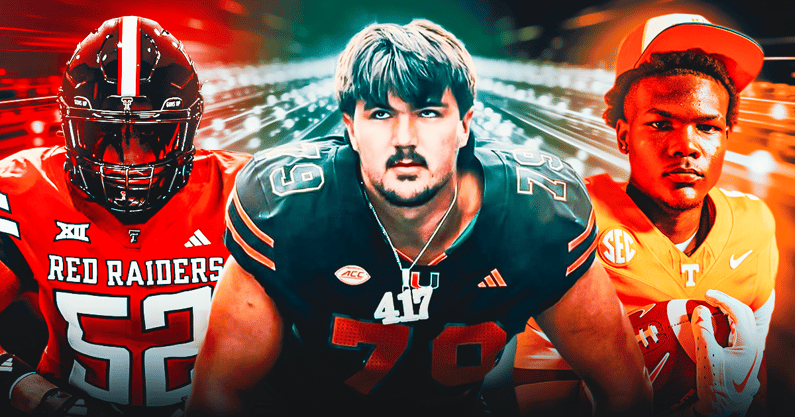
Inside the biggest NIL battles of 2026 recruiting cycle
Pete Nakos — 12/03/25
Read More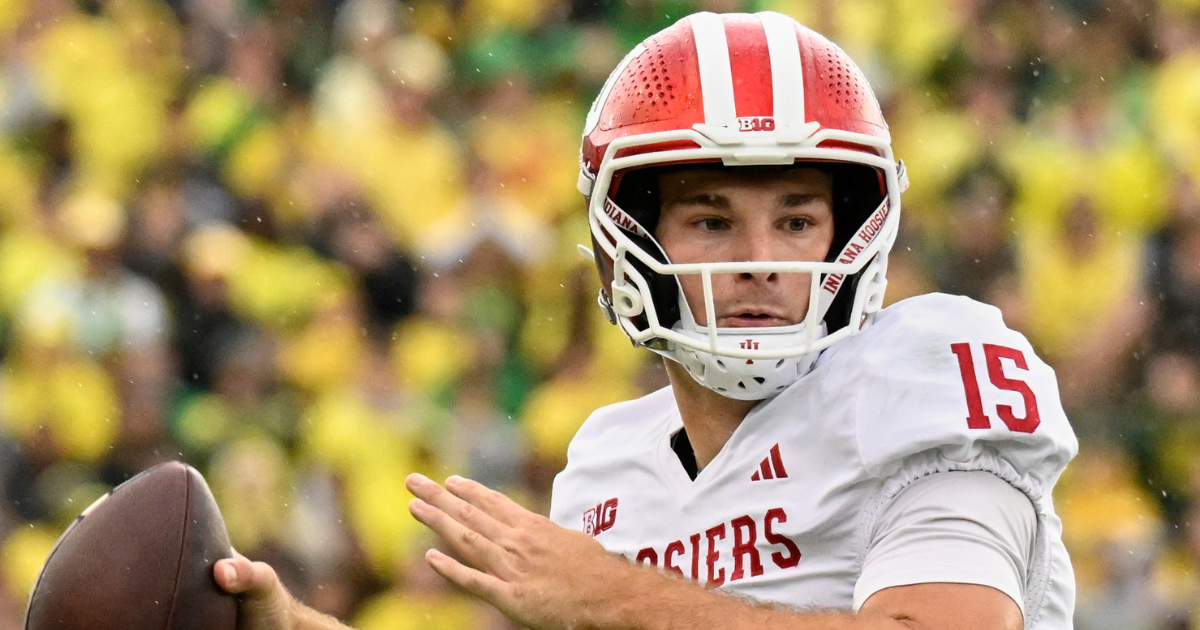
Indiana QB Fernando Mendoza inks NIL deal with adidas
Nick Schultz — 12/03/25
Ahead of the Big Ten Championship, Fernando Mendoza joined forces with the Three Stripes. The Indiana QB has signed an NIL deal with adidas.
Mendoza has put himself squarely in the Heisman Trophy conversation this year while leading Indiana to the Big Ten Championship. He leads the nation with 32 touchdown passes while completing 72% of his passes for 2,758 yards, to just five interceptions.
Now, Mendoza – who has a $2.6 million On3 NIL Valuation – is the latest college football star to sign an NIL deal with adidas as the company further invests in the space. The announcement comes just days before Indiana gets ready to take on Ohio State in the Big Ten title game at Lucas Oil Stadium in Indianapolis.
“Excited to share that I’ve accepted an opportunity to join adidas!” Mendoza wrote in a LinkedIn post. “I’m very grateful for everyone who has supported me along the way and excited to bring my passion for sport, leadership, and work ethic to the Three Stripes. Let’s get to work.”
Mendoza’s decorated debut season at Indiana has the Hoosiers one of two undefeated teams left standing heading into the Big Ten Championship. IU and Ohio State are the nation’s lone 12-0 teams, and they will square off Saturday night for the conference title.
Additionally, Fernando Mendoza has become one of the biggest names in college football. His $2.6 million On3 NIL Valuation ranks No. 5 in college football and No. 7 in the On3 NIL 100, the first of its kind and defacto NIL ranking of the top 100 high school and college athletes ranked by their On3 NIL Valuation.
Adidas has signed a slew of big names in college football to its athlete roster this year. The company made big splashes by landing Ohio State receiver Jeremiah Smith and Nebraska quarterback Dylan Raiola during the offseason. In late August, adidas also announced Arizona State quarterback Sam Leavitt and wide receiver Jordyn Tyson to NIL deals.
The brand is also capitalizing on top high school talent. Adidas announced a group of high school signees featuring top-rated recruits, led by No. 1-ranked wide receiver prospect Tristen Keys.
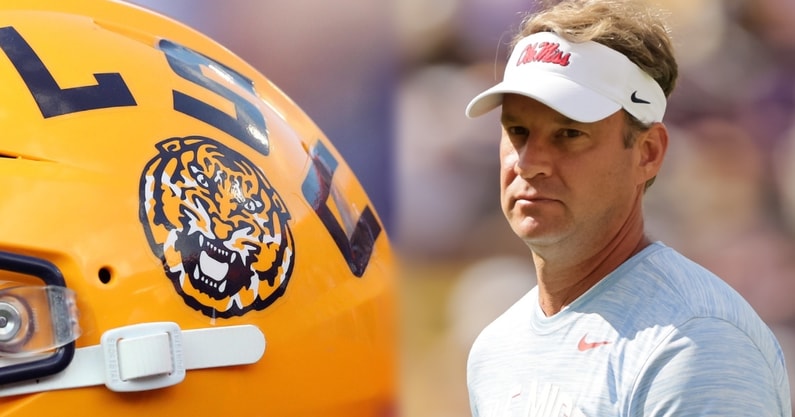
Lane Kiffin spotlights LSU NIL, donor plan over his deal: 'I'm telling you right now I don't know what my contract is here'
Griffin McVeigh — 12/01/25
From the beginning of this process, Lane Kiffin has been honest about one factor he does not consider important — money. At least when talking about his own contract. Kiffin continually stated he was never going to make a life decision from a financial standpoint, hammering home the point once again during his opening LSU press conference.
“I said through the process I’m never going to make a decision on money,” Kiffin said. “I’m telling you right now, I don’t know what my contract is here. That’s not very financially responsible, okay? I’m sure it’s really good, I don’t know what it is. Nor did I know at the other places what the numbers were because, I said, in the beginning, I told Jimmy Sexton, ‘Don’t tell me the numbers. I want to make a decision that has nothing to do with money for me. Now, tell me the numbers in the plan for what is for the players.’ Because that’s everything in that area, to me. Not what I make, what they make, to understand how you can build this.”
SUBSCRIBE to the On3 NIL and Sports Business Newsletter
Now, NIL dollars, that’s where Kiffin wanted to know the numbers being thrown around. Recruiting the high school ranks ranks high in importance at LSU, soon to be mixed with Kiffin’s frequent usage of the NCAA transfer portal. Going after players required to find success at LSU will require a good chunk of money.
Part of the conversation Kiffin had with LSU athletic director Verge Ausberry did include plans for the NIL structure moving forward. Of all the coaching options available to him, Kiffin says the Tigers put together the best plan. He knows how important a role it plays in eventually winning a national championship.
“Verge and his team had a really, really good plan,” Kiffin said. “Even talking to some donors that are part of that plan here to see exactly, how does that work? There’s a great plan here. There’s a great plan here of how we can come together with what we bring and with what players around the country want to play for us and our systems, and then have that support to do that, so that they want to play for us and they get taken care of financially.
“Obviously, nowadays, it’s the world of college football and it’s important and it’s critical to them. It’s important to them. This was the best setup. That definitely played a factor into it. I don’t care what your systems are. Without good players, they don’t work.”
Kiffin will inherit a fringe top-10 recruiting class, currently ranking 11th per the Rivals Industry Team Rankings — good enough for 6th within the SEC. Photos emerged of him meeting with the No. 1 overall player in the country, Five-Star Plus+ ATH Lamar Brown, on Sunday evening.
After all, recruiting is a non-stop, 24/7 process. Making sure the right resources are put behind it was important to Kiffin, getting everything he wanted from LSU before accepting the job.
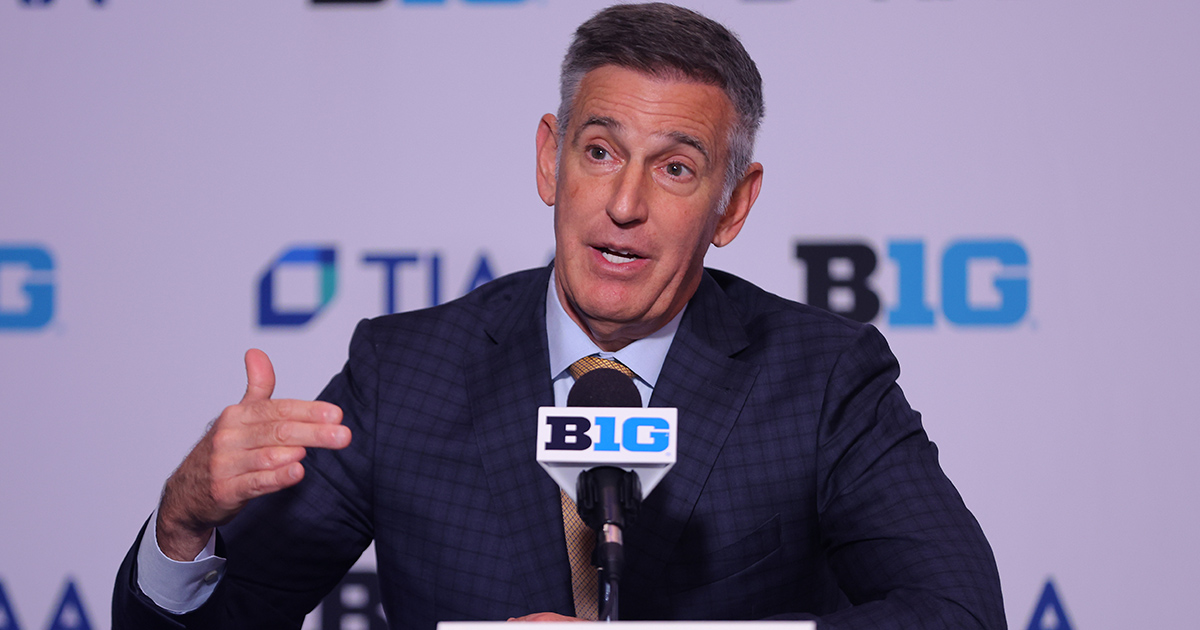
Congressman Michael Baumgartner calls out Tony Petitti for 'trying to buy votes' amid SCORE Act delay
Nick Schultz — 12 hours ago
After a vote on the SCORE Act was delayed, a U.S. Congressman emphatically called out Big Ten commissioner Tony Petitti. Rep. Michael Baumgartner (R-Wash.) took to social media and said Petitti was “trying to buy votes.”
A vote on the Student Compensation and Opportunity through Rights and Endorsements (SCORE) Act was scheduled for Wednesday afternoon, but later removed from the schedule. Yahoo Sports’ Ross Dellenger reported a vote will not take place this week, and it could be some time before any more action takes place.
SUBSCRIBE to the On3 NIL and Sports Business Newsletter
In the meantime, Baumgartner said Petitti’s influence could be impacting things. He made his thoughts clear in a social media post Wednesday evening.
If the Commissioner of the Big 10 would spend LESS money trying to buy votes w DC lobbyists and make MORE of an effort to STOP being a bullying jackass, then Congress could get on with passing some reasonable legislation to fix college sports. 🇺🇸
— Congressman Michael Baumgartner (@RepBaumgartner) December 4, 2025
If the Commissioner of the Big 10 would spend LESS money trying to buy votes w DC lobbyists and make MORE of an effort to STOP being a bullying jackass, then Congress could get on with passing some reasonable legislation to fix college sports. 🇺🇸
“If the Commissioner of the Big 10 would spend LESS money trying to buy votes w DC lobbyists and make MORE of an effort to STOP being a bullying jackass, then Congress could get on with passing some reasonable legislation to fix college sports,” Baumgartner wrote on X.
The SCORE Act was on track for the House floor following a close, 210-209 procedural vote on Tuesday. Introduced in July, the bill would codify the House settlement and grant liability protection, as well as preempt state NIL laws. It would also include an anti-employment clause and usher in regulation for agents.
Tony Petitti: SCORE Act ‘an important piece’
Power conferences pushed to support the SCORE Act throughout this college football season, airing commercials and sharing social media posts encouraging passage. NCAA president Charlie Baker has also been vocal in his support and encouraged members of Congress to vote yes, according to a copy of a memo obtained by Front Office Sports.
Tony Petitti has also been vocal in his support of the SCORE Act. Speaking at Big Ten basketball media days lats month, he reiterated his stance and touted the stability it would bring to the landscape following House settlement approval.
“When I first started going down [to Washington, D.C.] when I got the job, before settlement, it felt like we were kind of asking for more help,” Petitti said. “I think once we decided to settle, we set up this model with rev-sharing, there’s still NIL … I think it changed the tone in terms of, like, we’re not really asking.
“You asked us to change, you expected us to modernize our system. The settlement does that. We’d like to protect it so that we can actually operate it. It doesn’t mean it won’t get tweaked over time, but we’d like the opportunity to actually operate this new system. The SCORE Act does all those things. I think that’s a really important piece.”
Congressional Black Caucus opposes bill
However, Wednesday afternoon, news broke that the vote would not take place. Shortly after it came down, the Congressional Black Caucus released a statement opposing the SCORE Act. The caucus has been involved in negotiations with House Republicans about amending the bill, and some of those changes occurred.
“It is a shame that organizations like the NCAA, who last year touted $1.4 billion in revenue – a $91 million increase from the prior year – have for so long been able to benefit from college athletes’ hard work and sacrifice while the athletes themselves are often exploited and mistreated,” the statement read, in part. “To make matters worse, in 2023, Division I schools spent over $3.6 billion on coaches’ salaries – by far the largest spending category in these schools’ athletic finances.
“We cannot lose sight of the human impact here. At the center of this issue are the college athletes, many of whom are Black students and who may not come from sizable financial means. College athletes too often report struggling with injuries, food insecurity, poverty, and homelessness. It is wholly unfair that universities and coaches are lining their pockets while leaving so little, if anything, for the college athletes who make those profits possible.”
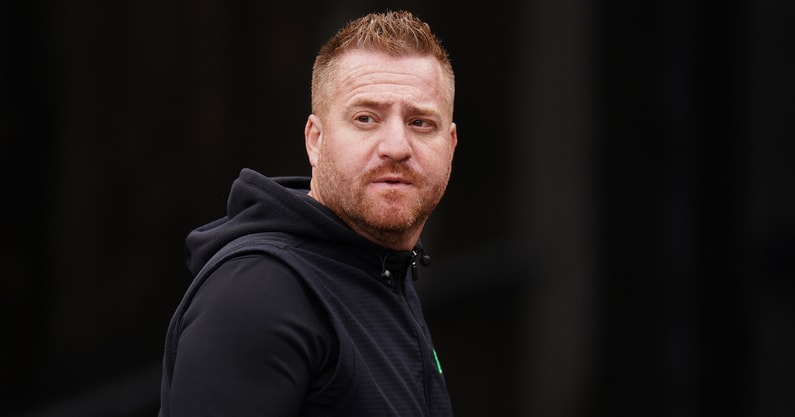
Golesh on recruiting, portal, NIL and revenue sharing
Bryan Matthews — 11/30/25
Auburn coach Alex Golesh gives his insights on recruiting, transfer portal, NIL and revenue sharing.
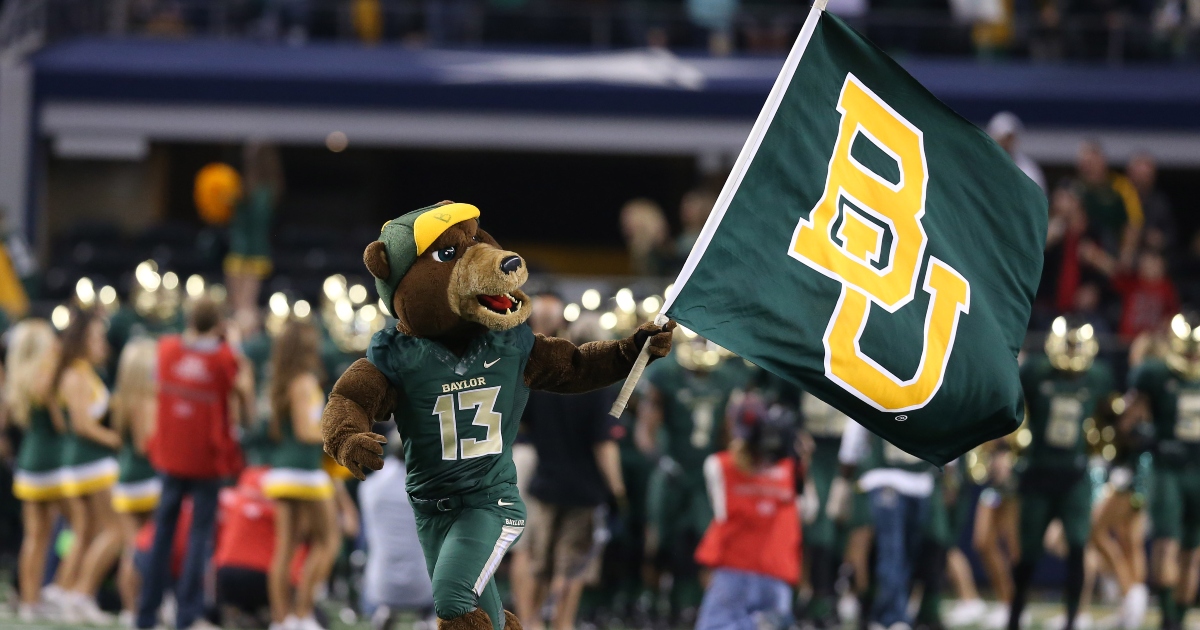
Baylor president evaluates athletics department's strategy in NIL, rev-share era after Mack Rhoades resignation
Nick Schultz — 11/28/25
Last week, after previously announcing a leave of absence, Mack Rhoades resigned as Baylor athletics director. As the school looks toward the search for a new AD, university president Linda Livingstone evaluated the next steps for the department.
Rhoades’ departure comes roughly less than six months after the House settlement ushered in the rev-share era in college athletics. But in addition to the $20.5 million cap in place under the agreement this year, Livingstone pointed out the need to ensure third-party NIL opportunities for Baylor athletes.
SUBSCRIBE to the On3 NIL and Sports Business Newsletter
It’s all part of her assessment of the financial model in college athletics, though she acknowledged Rhoades’ achievements in Waco. That means making sure donor support is in place, as well as making sure there’s stability from a financial standpoint.
“I think what I would say, in terms of going forward – and this is not a reflection on Mack. It’s a reflection on the changing nature of college athletics,” Livingstone said during an interview with the Waco Tribune-Herald. “I think we’ve got to really think about kind of our financial model in college athletics. Everybody’s doing this. And how do we financially support athletics at the level we have to, to be competitive on a national scale – both in the conference and nationally – from a financial perspective that doesn’t burn the institution in a way that’s harmful to other aspects of what we’re doing? And frankly, at the end of the day, we’re an academic institution. We’ve got to make sure we continue to support that.
“So how do we work with our donors and ways to support what we’re doing? How do we grow a broader sponsorship base? How do we think about outside NIL? Doing it in a legitimate way, for legitimate NIL at fair market value that’s external to the $20.5 million or so that we can spend internally. We’ve got to do all of those things better to have the financial base and athletics, both from an operating budget perspective, but also from an NIL perspective.”
Those third-party NIL opportunities are viewed as a difference-maker in the new landscape. While the NIL Go clearinghouse is in place to vet deals worth more than $600, outside deals can help athletes earn so-called “over-the-cap” dollars beyond rev-share. That, Livingstone said, should be Baylor’s focus moving forward.
“I think the schools that are going to be successful over the long run are going to have really robust outside NIL models that are legitimate, by the rules and consistent with the philosophy of what NIL was intended to be to begin with,” Livingstone said. “So I think those are some things that the new athletic director is going to have to focus on to help ensure our football program, our basketball programs, all of our programs can really be competitive going forward.”
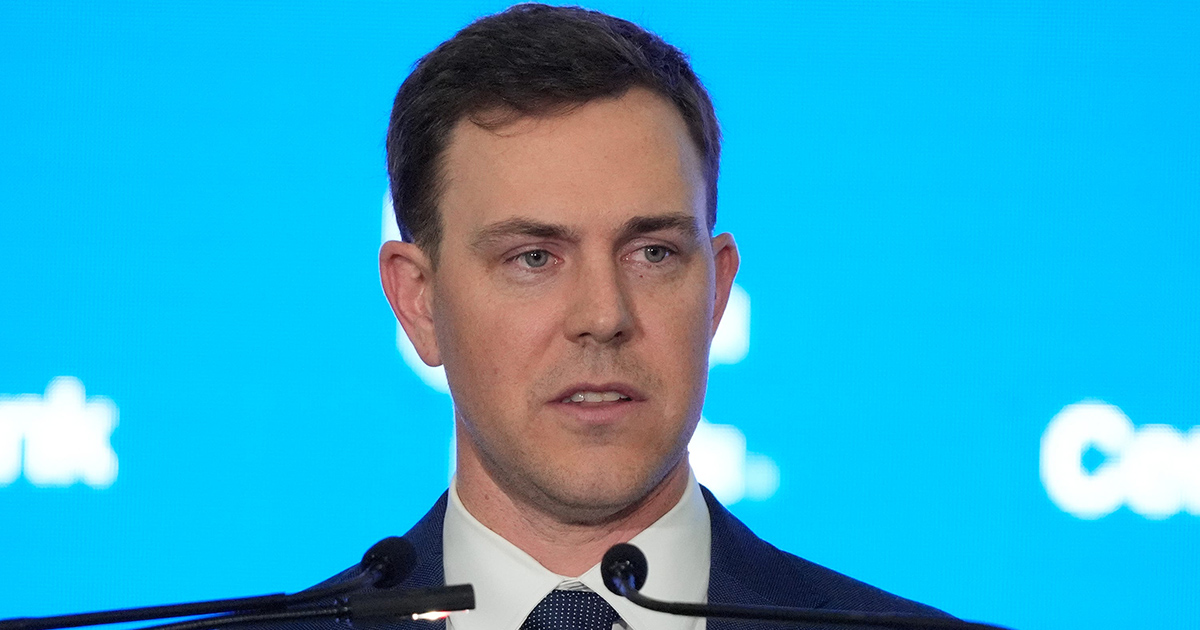
Will Stein pushes back on misconceptions about NIL at Oregon, praises Kentucky support
Nick Schultz — 11 hours ago
Since the NIL era arrived in college athletics, Oregon has been at the forefront. The school’s relationship with Phil Knight and Nike became a key talking point as the Ducks found success under Dan Lanning, and Will Stein was there along the way.
Now getting ready to become the head coach at Kentucky, Stein detailed his approach to NIL and revenue-sharing. But he also wanted to dispel a misconception about Oregon when it came to recruiting.
SUBSCRIBE to the On3 NIL and Sports Business Newsletter
Stein praised Kentucky’s support as he takes over for Mark Stoops. He cited the plan athletics director Mitch Barnhart and others in the department presented, saying UK is in a good position as it enters a new era on the football field. But even though it’s part of the landscape now, Stein said he’s not planning to lead with money – the same approach Oregon takes.
“Let me say this. I worked at a place everybody thinks Phil Knight, Nike, these guys got the most money,” Stein said Wednesday. “Yeah, there’s money there. Don’t get me wrong. But we beat recruits because we win the relationships. That’s where it starts. Guys still want to get recruited old school. You’ve still got to know mom, grandma, aunt, coach. You’ve got to be completely entrenched in these people’s lives. And when you can do that, you don’t always have to be the highest bidder.
“If the first conversation is about money, probably not the place for you – not because of lack of it. We have plenty of that here. Plenty. I talked to about 10,000 people last night the basketball game all very, very willing and supportive of the program. So I know we have that. But that can’t be the first thing to talk about. I want guys that love football and want to compete every single day to be the best version of themselves and win.”
Will Stein: ‘It ain’t the old days’
As Will Stein gets ready to adjust to life as a head coach in the NIL and rev-share era, On3’s Pete Nakos reported is targeting Oregon director of recruiting Pat Biondo as his general manager. While Stein could not confirm Biondo as the target – he said he expected that news come down “soon” – he noted the impact the financial component has on recruiting.
But when it comes down to it, he made it clear there are still similarities to what the recruiting process was like pre-NIL. That’s why Stein stressed the need for adaptability when it comes to navigating the ever-changing space.
“There’s a lot of facets to the evaluation process,” Stein said. “Then, it’s about the recruitment. Recruiting is still old school it really is. … There is a financial piece to it now. To me, the best trait of a college football coach now is adaptability. We’ve got to adapt.
“If you all are still saying, ‘I wish it was like the old days.’ It ain’t the old days. It’s not. So just get that out of your mind. Let’s push forward. Let’s move forward in this process. How do you do that? It takes everybody in this room.”
